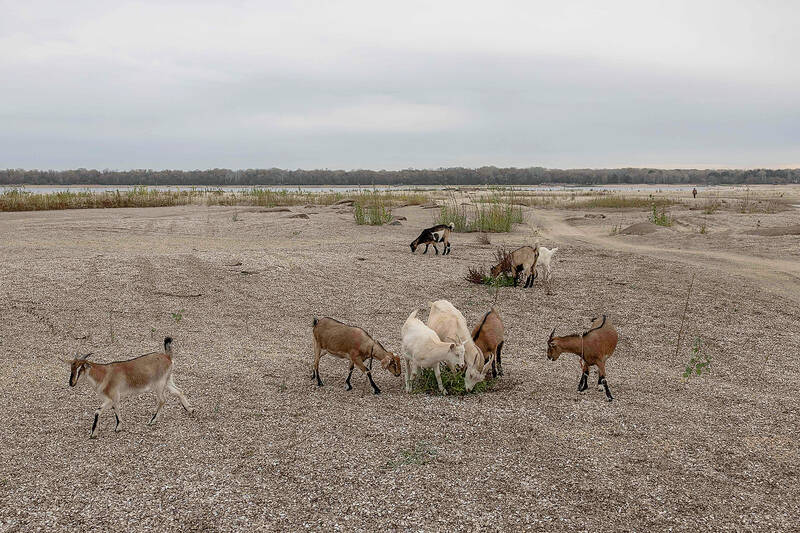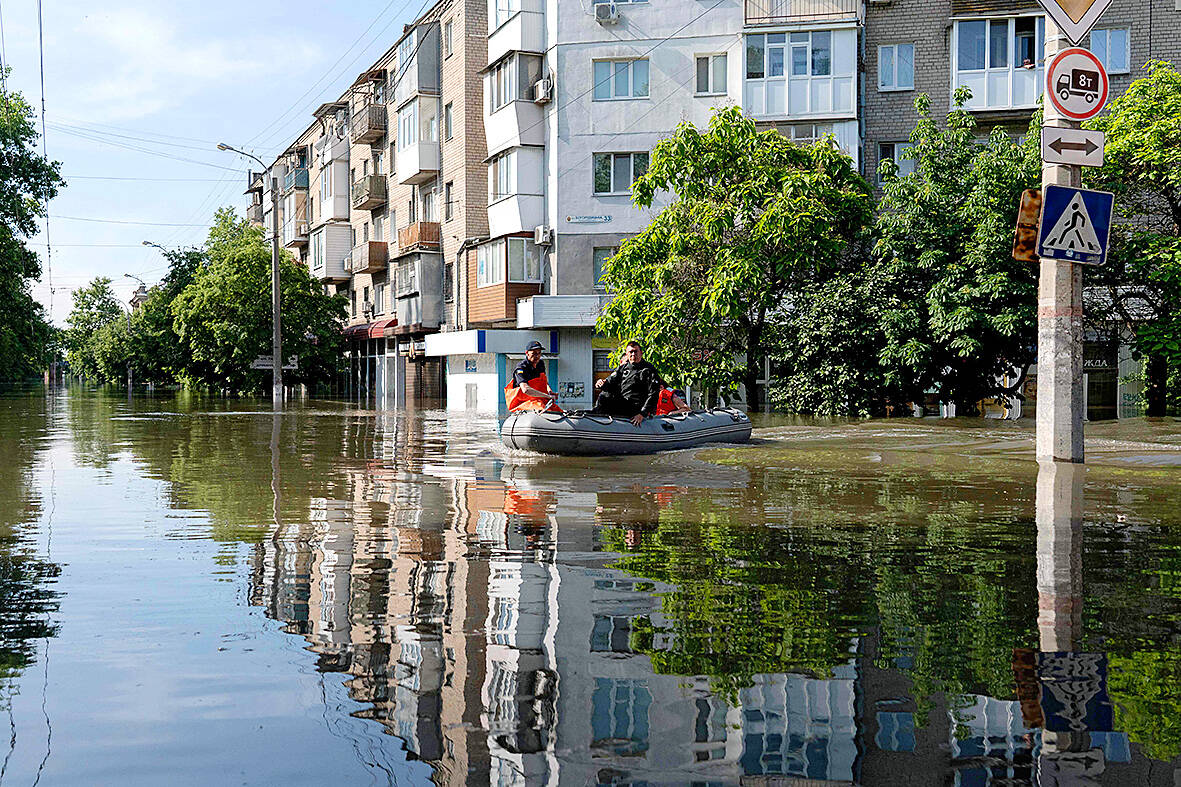The link between climate change and war has been a running theme at COP28, highlighting how many countries suffer from both deadly conflict and environmental disasters.
At the UN climate talks in Dubai, war-torn Gaza, Yemen, Syria and Ukraine and have made their voices heard, complaining about the environmental impact of constant fighting.
“Ecocide,” read a slogan in Ukraine’s pavilion, which was covered with posters detailing the environmental impacts of Russia’s invasion.

Photo: AFP
A display showed the remaining half of a house, one of many hit by the destruction of the Kakhovka dam in June. Russia and Ukraine have traded blame for the disaster.
The other side of the story is how climate destabilization and a scramble for resources can push climate-vulnerable countries into war.
Seventy percent of the most climate-vulnerable countries are also among the weakest politically and economically, according to the World Bank.

Photo: AFP
In Yemen, a parched country on the southern fringe of the Arabian Peninsula, a grinding eight-year civil war has increased pressure on diminishing water supplies, said Yemeni Minister of Water and Environment Tawfiq Al-Sharjabi.
“Conflicts contribute a lot to increasing the suffering of citizens through their impact on environmental resources in general and water resources in particular,” he said.
South Sudan President Salva Kiir Mayardit told world leaders gathering at the start of COP28 that many of his people had been displaced by fighting over water.

Photo: AFP
“Peace and security are clearly affected as a result of climate change,” he said on Saturday, wearing his trademark black cowboy hat.
GAZA: ‘NOTHING LEFT’
At the Palestinian pavilion, the first one ever at a COP, a presentation on the environmental impact of Israel’s occupation was broadcast on a big screen.
“Climate rights: on the other side,” read a slogan on the wall, suggesting that Israel defends its climate while violating the environmental rights of Palestinians living in Gaza and the West Bank. Hadeel Ikhmais, a climate expert with the Palestinian Authority, said that Israeli bombardments in Gaza have destroyed desalination plants, waste-water treatment facilities, and water wells.
“Plans to combat climate change were drawn up based on what was on the ground,” but since the start of the Israel-Hamas war on Oct. 7, “there is nothing left,” she said.
Robert Mardini, head of the International Committee of the Red Cross, said his organization’s climate-related projects in Gaza have all been halted.
“The Gaza Strip is a place where dwindling water resources, reduced quality of water and unpredictable weather events are already a challenge,” he said.
“Some small projects the ICRC had been supporting over the past years really helped the communities cope with the consequences of climate change,” he said, adding that “unfortunately, they are now halted.” Gideon Behar, Israel’s Special Envoy for Climate Change and Sustainability, said at a side event that “one should differentiate between geopolitical issues and the climate issues.”
“In a place like COP we should make our utmost to concentrate on the climate crisis and to deal with geopolitical issues in other arenas.”
FIRE AND FLOODS
After nearly two years of war in Ukraine, experts say the environmental damage will affect generations to come.
As well as the Kakhovka dam disaster, which caused massive, deadly flooding, the conflict has generated about 150 million tons of CO2 emissions, mostly from fuel and fires, a deputy Ukrainian minister said this week, citing a study by the Initiative on GHG Accounting of War.
Nearly 30 percent of Ukraine’s forest zones and about one-fifth of its natural parks have been affected by the war, said Ruslan Strilets, minister of environmental protection and natural resources.
COP28 became the first of the UN’s Conference of the Parties to hold a thematic day dedicated to peace, drawing a link between war and climate change, and urging more funding for the most troubled countries.
Libya, Yemen and Syria, all territorially contested states gripped by war, are mostly locked out of climate finance because they don’t meet the requirements set by donors at multilateral institutions.
All have weak central governments, and with a high risk that aid money will end up in the hands of militants, many donors stay away.